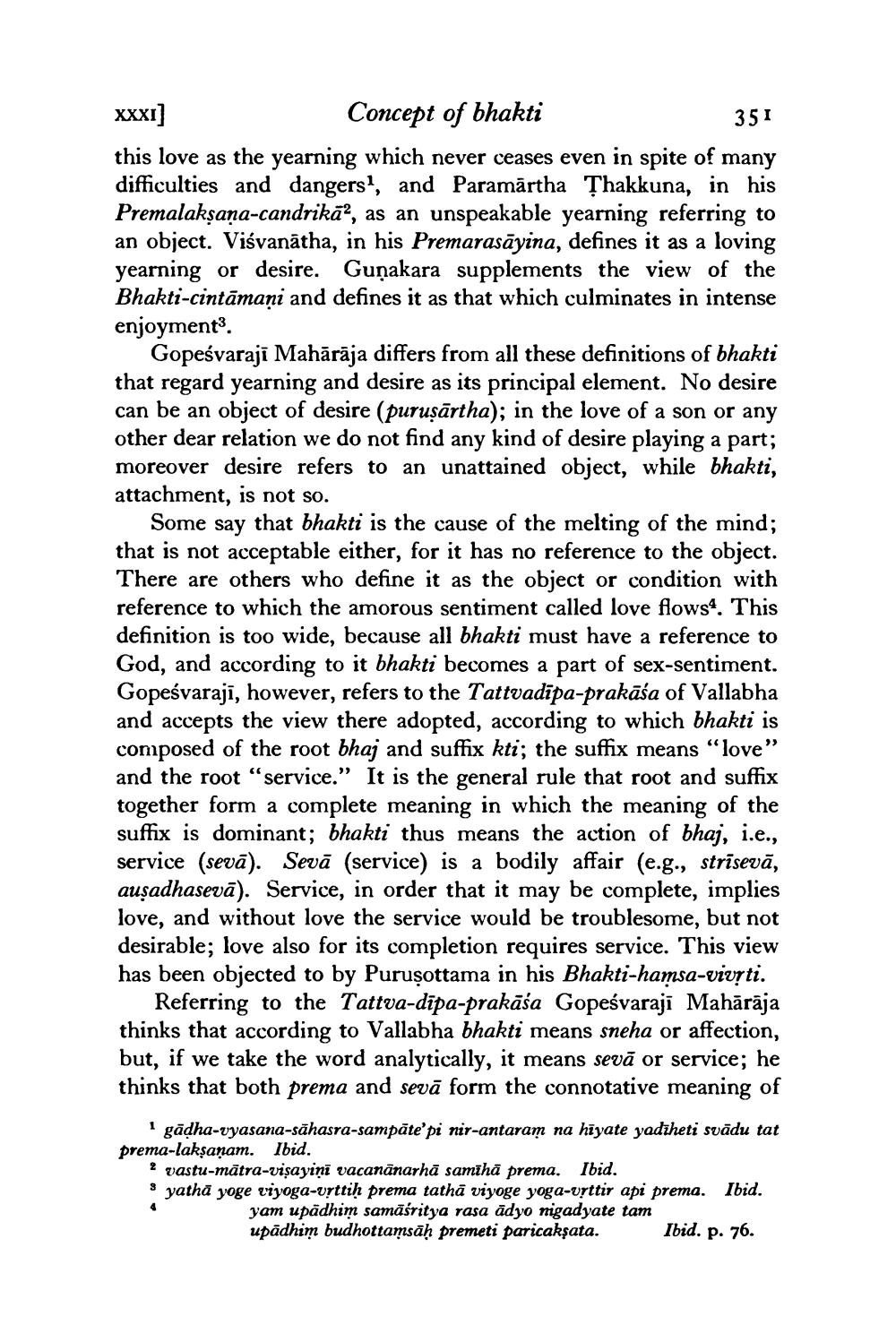________________
XXXI] Concept of bhakti
351 this love as the yearning which never ceases even in spite of many difficulties and dangers, and Paramārtha Thakkuna, in his Premalakṣaṇa-candrikā?, as an unspeakable yearning referring to an object. Viśvanātha, in his Premarasāyina, defines it as a loving yearning or desire. Guņakara supplements the view of the Bhakti-cintamani and defines it as that which culminates in intense enjoyment3.
Gopeśvaraji Mahārāja differs from all these definitions of bhakti that regard yearning and desire as its principal element. No desire can be an object of desire (puruṣārtha); in the love of a son or any other dear relation we do not find any kind of desire playing a part; moreover desire refers to an unattained object, while bhakti, attachment, is not so.
Some say that bhakti is the cause of the melting of the mind; that is not acceptable either, for it has no reference to the object. There are others who define it as the object or condition with reference to which the amorous sentiment called love flows4. This definition is too wide, because all bhakti must have a reference to God, and according to it bhakti becomes a part of sex-sentiment. Gopeśvarajī, however, refers to the Tattvadīpa-prakāśa of Vallabha and accepts the view there adopted, according to which bhakti is composed of the root bhaj and suffix kti; the suffix means "love" and the root "service.” It is the general rule that root and suffix together form a complete meaning in which the meaning of the suffix is dominant; bhakti thus means the action of bhaj, i.e., service (sevā). Sevā (service) is a bodily affair (e.g., strīsevā, ausadhasevā). Service, in order that it may be complete, implies love, and without love the service would be troublesome, but not desirable; love also for its completion requires service. This view has been objected to by Purusottama in his Bhakti-hamsa-vivști.
Referring to the Tattva-dipa-prakāśa Gopeśvaraji Mahārāja thinks that according to Vallabha bhakti means sneha or affection, but, if we take the word analytically, it means sevā or service; he thinks that both prema and sevā form the connotative meaning of
gādha-vyasana-sahasra-sampāte'pi nir-antaram na hiyate yadiheti svādu tat prema-laksanam. Ibid.
? vastu-mātra-visayiņi vacanānarhā samīhā prema. Ibid. yatha yoge viyoga-urttih prema tathā viyoge yoga-vrttir api prema. Ibid.
yam upādhim samāśritya rasa ādyo nigadyate tam upādhim budhottamsah premeti paricakşata. Ibid. p. 76.




